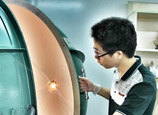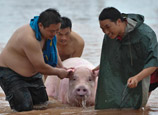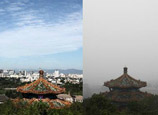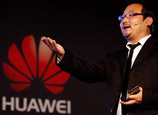
China is investigating several major foreign milk powder sellers for possible price manipulation and breach of Chinese Anti-trust Law, the National Development and Reform Commission (NDRC) said Tuesday, a move that is expected to restore consumers' confidence and may help protect domestic infant formula producers.
The probe will investigate the pricing of infant formula sold by Biostime International Holding, Mead Johnson Nutrition, Danone, Abbot Laboratories, Nestle, and Royal FrieslandCampina NV, according to media reports on Tuesday quoting unnamed sources.
Hong Kong-listed Biostime said Thursday that its subsidiary, Guangzhou-based Biostime Inc, is under investigation by the NDRC as its price management with its distributors and retailers may violate China's anti-trust law.
"Based on the evidence obtained, these companies are involved in price control with distributors and retailers, aimed at excluding fair market competition," an NDRC press official confirmed with the Global Times Tuesday.
The NDRC also said that its antitrust agency will launch an in-depth investigation to sustain fair competition and protect the interests of consumers.
Nestle and Mead Johnson Nutrition China told the Global Times Tuesday that they are also being investigated by the NDRC and that they have submitted the documents required.
The other milk powder producers and sellers under investigation were not immediately available for comment.
"The NDRC's move is aimed at boosting consumers' confidence and helping domestic dairy producers," Wang Dingmian, an independent dairy expert, told the Global Times.
Prices of foreign brands of infant formula are set high in China, usually double or even triple the price in the international market, Wang said.
Foreign infant formula producers have increased prices by 30 percent since 2008, partly due to rising labor costs and inflation, a Guangzhou-based dairy distributor told the Global Times on Tuesday on condition of anonymity.
But the reason why the NDRC is targeting Biostime is because the price of its product was hiked too far, he said. It imported raw materials from France at a cost of 53 yuan ($8.6) per tin and sold it after local labeling for nearly 400 yuan, the distributor said.
Biostime increased its market share by offering high margins to its distributors and retailers, and it also set a bad example for other foreign producers to follow suit, he said.
"The probe may lead to foreign brands lowering prices in the future, which would be good for consumers," said Jian Aihua, a dairy analyst with CIC Industry Research Center.
But domestic dairy producers may not benefit as they will lose their pricing advantage if their foreign competitors lower prices too, she said.
Local infant formula producers have been struggling to survive as consumers have little trust in products made at home and have preferred foreign brands ever since the melamine-tainted baby milk powder scandal involving domestic producer Sanlu in 2008.
Currently foreign brands account for 70 to 80 percent of the market, especially in first-tier cities, forcing domestic producers to focus on second- and third-tier cities, Jian said.
A survey by business portal sina.com.cn showed Tuesday that 82.3 percent of the 3,019 respondents said the foreign producers should be investigated as the prices have risen so much.


















![]()
